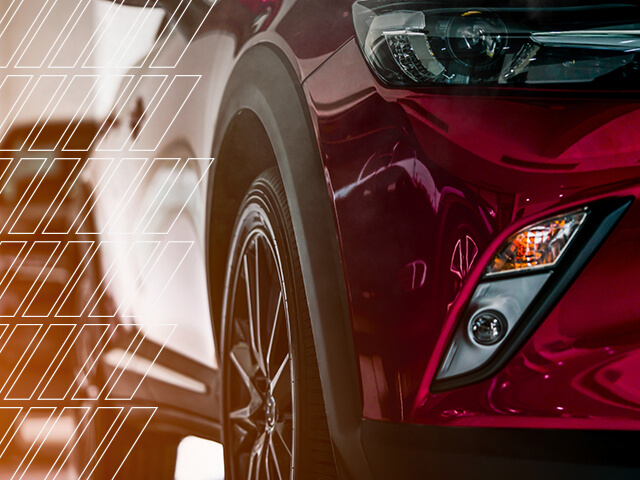ACV facts & figures

Shopping at car auctions is one way to source inventory for your dealership. If you are a “new” dealer or just need a refresher, here is a guide to the different types of auctions available.
Why Are Cars Put Up for Auction?
Generally, sellers put cars up for auction to efficiently liquidate physical assets into cash. The exact reasoning behind the auction depends on the seller. For example, dealerships themselves may wholesale vehicles in auctions as a way to improve their car inventory turnover rates. In insurance vehicle auctions, insurance companies may be trying to offload salvage vehicles to recoup on the payout amount they provided their insured customer.
There’s an assumption that only vehicles in terrible condition go up for auction, but that’s not the case. Repo vehicle auctions, for instance, often feature repossessed vehicles that the bank or other lender is trying to sell. Selling the vehicle helps recoup some of the money they loaned out1.
Types of Car Auctions
Generally, dealerships are eligible to participate in all types of car auctions; however, it is essential to choose auctions tailored to your dealership’s specific needs.
Dealership-Only Auctions
Dealership-only auctions aren’t open to the public. Only authorized dealers with valid dealer licenses can participate2. (Some car auctions might also require an Auction Access account.) For dealerships, the benefit of these auctions is that there’s less competition to fuel bidding wars. As a result, you may be able to get even better prices than in other types of auctions.
Additionally, you are buying cars from trusted wholesale sources (i.e. other car dealerships, rental car units) so these vehicles come with a condition report, title transferring services, and have terms for arbitration (if there are problems with the vehicle after you win it)
No Reserve Auctions
A reserve is the minimum bid that must be met for the vehicle to be sold. For example, the starting bid on a vehicle could be $2,000, but if the bidding doesn’t reach a reserve of $5,000, no one wins the vehicle.
Conversely, a no-reserve auction means there are no minimum prices (reserves) on the vehicles for sale. The highest bid wins, regardless of the amount.
Online Auctions
Increasingly, dealerships are turning to online car auctions for their accessibility and convenience3. With online auctions, you can bid remotely on vehicles located across the country without time limits or the inconvenience of travel.
Auctions by Vehicle Type
There are also auctions exclusively for certain types of vehicles, such as:
- Classic car
- Ex-government vehicle
- Motorcycle
- Salvage
- Repo
Live Appraisal
There are times when a dealer might not be able to put a good number on a vehicle. Perhaps they have a rare car at their dealership and aren’t sure how to price it at auction. That is where ACV Auctions live appraisal auctions can come in.
In ACV Auction’s live appraisal auctions, These auctions are designed as a pricing and valuation tool, this auction type helps dealers gauge the market value of vehicles—particularly those with limited comps or retail customer involvement.
The Role of Auctions in Dealership Acquisitions
Dealerships often rely on auctions to build up an inventory of used vehicles at competitive prices. There is also a speed to market component, when you buy from a Dealer Auction you are getting access to convenience. Often dealership auctions have access to flooring and transportation so you can get your inventory quickly.
Auctions are also useful for quickly building a diverse inventory. If your dealership is running low on specific vehicles or struggling to acquire certain models that your customers want, participating in auctions may help you access a wider selection of vehicles without long delays.
Simply put, auctions — especially many types of online auctions — are a convenient and efficient way for dealerships to source the inventory they need.
How Car Auctions Work
How do car auctions work? It depends. The organization or company hosting the auction dictates the rules. The type of auction also matters.
Typically, interested parties register to participate. They can view the list of vehicles and decide which they’re most interested in bidding on. The highest bids win, and money is exchanged for the vehicles.
You have to adjust your approach to each auction; however, here are general tips for participating in car auctions:
- Research the auction lots you are interested in
- Set a price ceiling
- Check closed auctions
- Track auction time
- Choose auctions tailored to the types of vehicles you want to purchase
Place a Bid and Start Winning Quality Vehicles for Your Dealership
Every day, ACV Auctions runs thousands of wholesale cars through our online dealer auction platform, making it easy to find all the vehicles you need to stock your lot. Our auctions combine rigorous vehicle inspections performed by full time inspectors, detailed condition reports, and the latest technology so you can bid with confidence.
Sign up today and join thousands of other car dealers who have already transformed their inventory sourcing with ACV.
Sources:
- Types of Vehicle Auctions. Dealer 101. Retrieved June 20, 2025, from https://dealer101.com/auctions/auction-types/
- Arkin, G. (6 April 2021). Everything You Ever Need to Know About Car Auctions. Nexus Auto Transport. Retrieved June 20, 2025, from https://nexusautotransport.com/everything-you-ever-needed-to-know-about-car-auctions/
- (22 May 2024). Insider Tips: Dealer Tactics at Car Auctions. Twin Cities Auctions. Retrieved June 20, 2025, from https://blog.twincitiesautoauctions.com/insider-tips-dealer-tactics/












